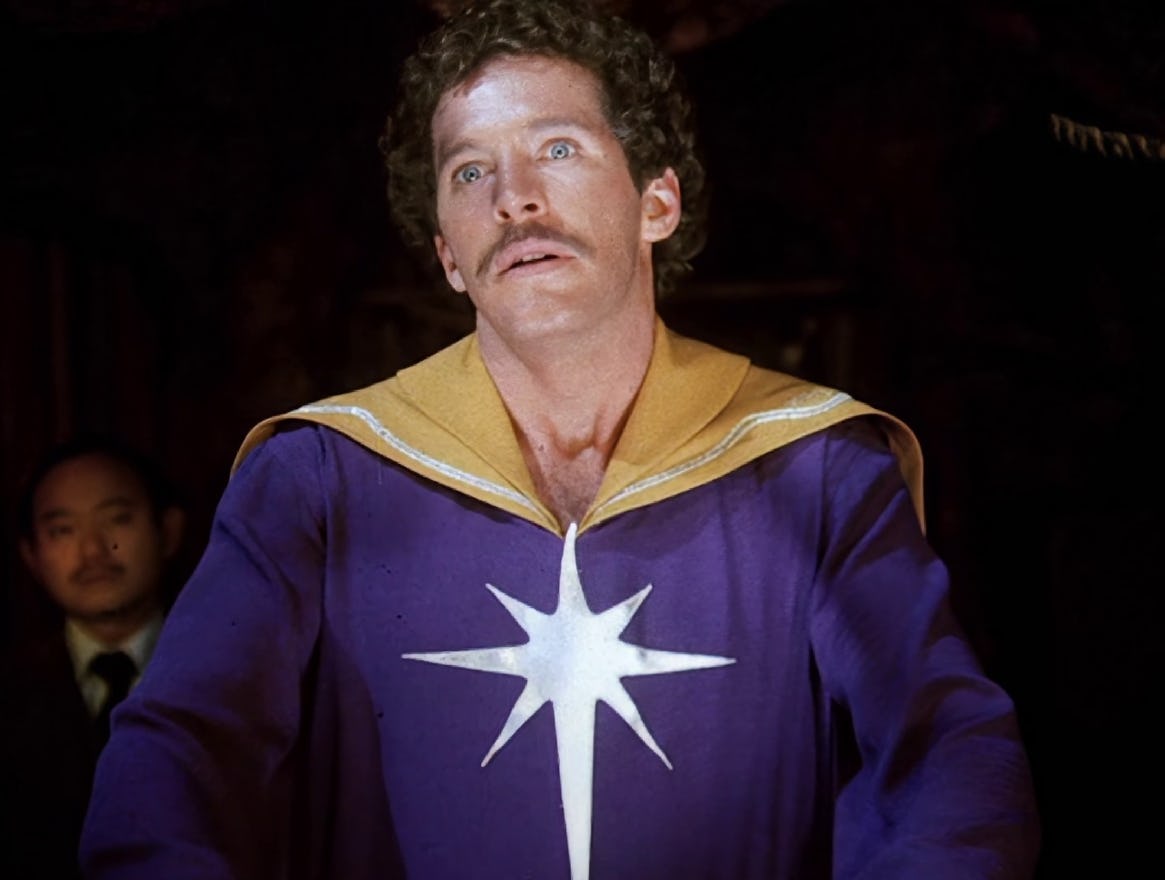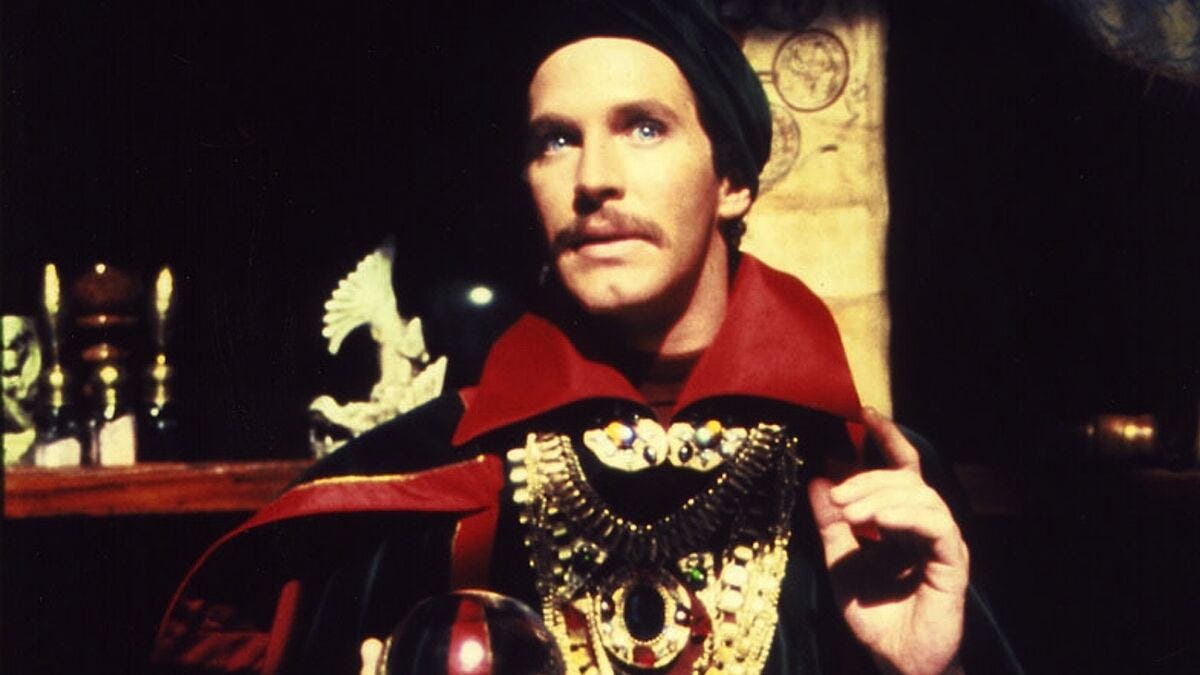
Today, Doctor Strange is a superhero known the world over. 45 years ago, it was a radically different story. The world simply wasn’t ready for the one they call the Sorcerer Supreme, as evidenced by the 1978 made-for-TV movie Dr. Strange.
The character of Doctor Strange is more or less a household name these days, largely thanks to the success of the Marvel Cinematic Universe. Benedict Cumberbatch has been playing the role since 2016, and the films he features in have been remarkably successful, with Avengers: Endgame and Spider-Man: No Way Home ranking as some of the biggest movies in history. ‘78’s attempt to bring Stan Lee and Steve Ditko’s master of the mystic arts to life, on the other hand? Not so much.
Just a handful of months after The Incredible Hulk debuted on CBS, the network decided they wanted to go all in on the comic book business. So, they tapped director Philip DeGuere Jr. to direct Dr. Strange (not styled Doctor, as it typically is in the comics), a feature-length pilot for a possible TV show. The show would never come to pass.
Bit actor Peter Hooten was cast as Stephen Strange in a film that saw him duking it out with Morgan le Fay (Jessica Walter), who intends to unleash an unspeakable evil. Strange, a psychiatrist, is called upon by an ancient guardian of the spirit world to take the place of the Earth’s last sorcerer. As the new Sorcerer Supreme, he must venture into the fourth dimension and defeat Morgan.
The story, taken at face value, doesn’t sound too far removed from something one might read in an issue of Strange Tales from the ‘60s. That said, the movie not only doesn’t hold up to modern scrutiny, but stands as a testament to just how unready Hollywood was to faithfully embrace superheroes (Superman aside). The MCU’s Doctor Strange succeeded by truly embracing the character and everything that comes with it, and the dichotomy between these two versions of Marvel’s magical hero demonstrates just how far we’ve come over the last four decades.
It wouldn’t be fair to hold the ‘78 film up against 2016’s Doctor Strange and knock it for its visual effects which are, to put it nicely, befitting a ‘70s TV movie. But the movie didn’t fail because it didn’t have expensive action sequences. So much of it comes back to character and story decisions that reek of a lack of confidence — or, perhaps, respect — for the source material. Why is it some random ancient guardian instead of The Ancient One who enlists Strange as the new Sorcerer Supreme, for example? Such decisions don’t serve the story, and add up to an unsatisfying result.

Rather crucially, comic book Stephen Strange is a surgeon who relies on his hands to do his job. A terrible accident robs him of their use, leading him on a quest to get his old life back which leads him to the ways of sorcery. Instead of going back to surgery, he goes all-in on the sorcerer life, becoming one of Earth’s most important protectors in the process. Marvel Studios and director Scott Derrickson were remarkably faithful to this in the 2016 film, and it’s all the better for it. The fact that the Stephen Strange of the late ‘70s was a psychiatrist instantly robs the film of that rich origin story.
What sense was there in changing his profession? How does that benefit the story? Plainly, it doesn’t. There’s no equivalent scene to the first teaser for Doctor Strange, where you see a shot of Cumberbatch’s hands shaking after his accident as he realizes his life is about to change forever. Here, Strange is just a guy who stumbles into some powers, while elements that even remotely resemble Stan Lee and Steve Ditko’s comics are few and far between.
It’s certainly okay — and often necessary — to make changes in adapting comics for the screen. Captain America: Civil War hardly resembles the comic that inspired it, but the spirit of the story is there. It’s not as though the MCU’s depictions of Strange have been unimpeachable. But you don’t get something as inventive as the “Dormammu, I’ve come to bargain” scene by disregarding the core elements of the character.
In fairness, Hooten looks the part and probably could have played a good Strange in his day, had he been given better material. But for Dr. Strange, the source material was stripped for parts by people who didn’t seem to care about that material in the first place. That’s the key difference between then and now. Say what you will about Marvel Studios, but head honcho Kevin Feige clearly has respect for the comics. The CBS of 45 years ago did not.







